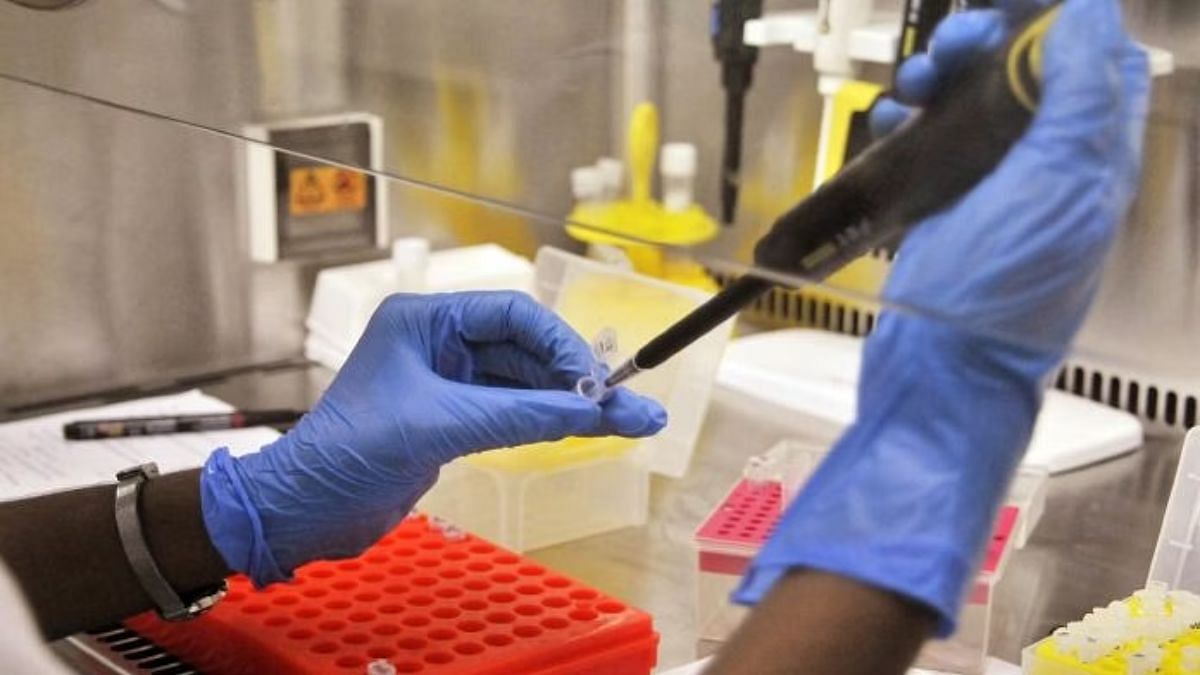New Delhi: An important study that indicates the true case burden of drug-resistant tuberculosis and reveals emerging resistance to newer drugs like bedaquiline, has shown that nearly 51 percent of non-responsive patients may be affected by pre-extensively drug-resistant tuberculosis (pre-XDR-TB).
TB cases with resistance to the two main anti-TB drugs, rifampicin and isoniazid, and crucial second-line TB drugs such as fluoroquinolones, are defined as pre-XDR-TB.
The study published this month in the American Society for Microbiology’s indexed journal Microbiology Spectrum also found that 15.5 percent of TB patients had multiple drug-resistant TB (MDR-TB) – a form of the disease that does not respond to the two most-potent drugs available to treat the condition.
The study was carried out by researchers associated with HaystacksAnalytics, a health tech company incubated at the Indian Institute of Technology (IIT), Bombay, in collaboration with Dr D.Y. Patil Medical College, Pune, using genomics diagnostic solutions.
The study is based on real-world data on the TB drug-resistance profile by whole-genome sequencing (WGS) of 600 clinical samples from patients with TB in India. Clinicians typically send samples of difficult-to-treat cases for WGS to assess why the first-line treatment did not work.
The findings highlighted resistance not only to rifampicin, a drug used to manage and treat diverse mycobacterial infections, and isoniazid, an antibiotic indicated in first-line treatment of active Mycobacterium tuberculosis (TB) infections but also to fluoroquinolones, which is used widely as therapy for respiratory and urinary tract infections.
The emergence of drug-resistant tuberculosis is a global health crisis, more so in India, which shares over one-fourth (27 percent) of the global burden as per the World Health Organisation’s Global TB Report, 2023.
The India TB report, 2024, released by the Union Ministry of Health and Family Welfare last month, said in 2023, a total of 20.5 lakh new TB cases and 63,939 MDR-TB cases were notified in the country.
Meanwhile, Dr Anirvan Chatterjee, chief executive and co-founder at HaystackAnalytics and a contributor to this study, said the findings underscored the urgency of revisiting the conventional one-size-fits-all approach to TB management.
“Also, understanding the genetic lineages, particularly the predominance of the Beijing genotype, followed by Delhi-CAS and EAI (various strains of TB bacteria), is crucial for developing targeted interventions and treatment strategies,” he said.
Chatterjee also pointed out that when anti-TB therapy is given in the absence of a complete drug-resistance profile, such therapy may contain one or more drugs to which the patient is resistant, and could compromise its outcome.
Also read: Antimicrobial resistance can kill 10 million by 2050. Ending it will be an era-defining triumph
‘India faces considerable challenges’
Treatment of drug-resistant TB is guided by the programmatic management of such cases, in line with global recommendations of several regimens including newer drugs.
With three new and recently repurposed drugs, treatment of MDR-TB has evolved but, despite this, noted researchers, global treatment success rates have been only between 48 and 56 percent, as stated by WHO in its annual Global Tuberculosis Reports from 2014 to 2019.
A previous study from India – of 4,024 MDR-TB cases in Maharashtra – showed the treatment success rate with a 24-month standard regimen was even poorer (29 percent) than the global rates.
One of the many reasons for poor treatment outcomes is poor diagnosis seen in a large number of MDR-TB cases, the authors said, adding that early and comprehensive universal drug-susceptibility testing was expected to significantly improve treatment outcomes and reduce transmission of drug-resistant forms of TB.
However, they noted, that India faced considerable challenges because of low investment in public health programs, high endemicity in difficult-to-reach locations, and persisting diagnostic gaps despite the National Tuberculosis Elimination Programme (NTEP) initiative to expand diagnostic network for quality-assured culture, drug-susceptibility testing and molecular assays.
Although the rollout of these technologies has led to early detection of a large number of MDR-TB/XDR-TB cases and their enrollment in treatment, an estimated 56 percent of MDR-TB cases in India remain undiagnosed, according to the study.
A statement by HaystacksAnalytics said the study highlighted the increasing use and adoption of WSG by doctors and clinicians for accurate diagnostics, personalised treatment approaches and policy intervention in tackling drug-resistant TB.
This further created scope to educate healthcare professionals and patients on the rational utilisation of advanced technologies and appropriate TB treatment practices.
The health tech firm added: “This includes the need of utilising diagnostic technologies like CBNAAT (cartridge-based nucleic acid amplification test) and whole genome sequencing, amidst emerging resistance to newer drugs like bedaquiline. These insights serve to inform policymakers, healthcare providers, and the public about critical issues in TB treatment and drug resistance, aiming to enhance TB control efforts and combat the burden of the disease.”
(Edited by Tikli Basu)
Also read: 70% of 36 popular protein supplements sold in India mislabeled, 14% contain toxins, says new study

